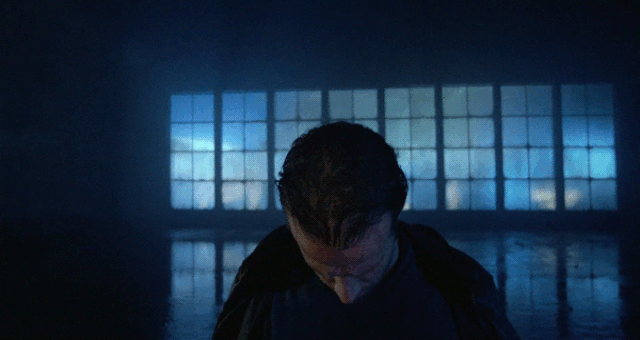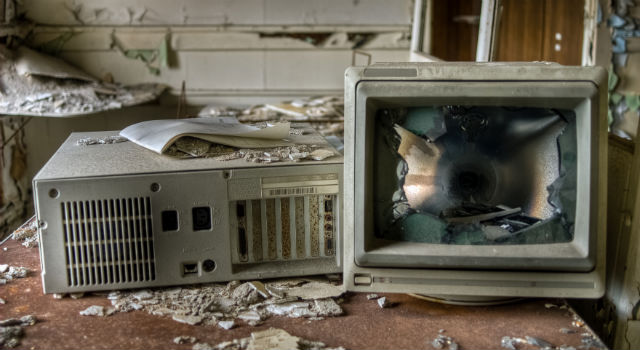The saying “Post-PC” by now is overused and tired, much like bemoaning Windows 8 or fawning over Apple products. We’re stuck in a hopeless Groundhog Day loop where we’re constantly entering, exiting and re-entering the Post-PC era. It’s all bullshit.
Everyone is obsessed with pinpointing the exact moment we crossed over into this brave, new computing world, one where we finally left keyboards behind and embraced the touchscreen, gesture-controlled future full-on. But that vision of the Post-PCpocalypse hasn’t happened yet. And guess what? It never will. At least not in the way we’ve come to understand it.
Pre-Post-PC
The phrase “Post-PC” itself goes back to an MIT professor named David Clark in 1999, but Bill Gates and Steve Jobs really popularised the term in 2007 at a D: All Things Digital conference. Three years later, Jobs clarified Post-PC in the context of the then fledgling iPad. He also talked about trucks and farming:
“When we were an agrarian nation, all cars were trucks because that’s what you need on the farm. But as vehicles started to be used in urban centres, and America started to move in those urban and suburban centres, cars got more popular and innovations like automatic transmission and power steering and things, you didn’t care about in a truck started become paramount in cars…PCs are going to be like trucks. They’re still going to be around. They’re still going to have a lot of value, but they’re going to be used by one out of X people.”
Clark, Gates, and Jobs all saw a future of choice, one in which our desktops and laptops would be complemented a multitude of other devices. That original vision, for the most part, has come true. But somewhere along the way, the phrase turned into something that suggests some kind of Highlander scenario between PCs and tablets:

That’s just not going to happen.
Forecasting that kind of future made sense given the meteoric rise of tablet sales since 2010. Not to mention that tablets made PCs look like complicated, virus-ridden dens of redundancy that deserve a mercy kill in these days cloud computing and slim bezels. Those dire — or triumphant, depending on your preference — predictions have been playing out for years as tablet sales rose and PCs continued their free fall in quarterly report after quarterly report.
But now it’s becoming clear that future isn’t quite so severe. PC sales are levelling out; Macs are even recovering. Meanwhile truly giant phones continue to cut into mini tab revenue, and Apple CEO Tim Cook is relying on a new IBM partnership to boost the sluggish iPad. Last week, Best Buy CEO Hubert Joly even commented on the tablet “crash” he’s noticed in his stores.
Post-Post-PC
So what’s going on here? Well, lots of things. As smartphone displays get bigger, demand for a dedicated tablet device naturally decreases. Not to mention that ultrabooks and the MacBook Air have gotten thin and light enough to haul around and use on the couch nearly as easily as one might a tablet. Apple hasn’t refreshed the iPad for almost a year. And perhaps most importantly, people are realising that tablets have staying power; a third-generation iPad still works perfectly well today. All it takes to watch a movie is a pretty enough screen.
There’s just not much need to upgrade, which IDC pointed out when it retracted its sunny outlook for tablets earlier this year. The same firm also found that even when we do spring for a new slate, we most likely give our old tab away like a tech hand-me-down, taking away another potential customer.
These factors all contribute in their own way to the current favourable shift toward PCs, sure. But the most important one of all is choice.
The more, the merrier
In the mid-2000s (or earlier), if you wanted reliable access the internet, it was a personal computer or GTFO. A decade later we have more choice that we’ve ever had. With smartphones, tablets, hybrids, and emerging wearables, such as Google Glass and even the Oculus Rift, we’re inundated with options tools. Those who need PCs for jobs, projects, gaming, or personal preference, are buying them, and those who only use a desktop to write a few emails and binge-watch cat videos are better served with a smartphone, tablet, or a combination of the two.
Which takes us back to Jobs’ initial thoughts on what this new era was supposed to be.
PCs are going to be like trucks. They’re still going to be around. They’re still going to have a lot of value, but they’re going to be used by one out of X people.
After almost five years of tumult, we’re finally close to solving for X. The PC may not be ubiquitous anymore, but it’s not going anywhere. After all, a tablet’s mobile apps and CAD designs all have to come from somewhere.
That’s why I’ve always preferred Bill Gates’ linguistic choice back in 1999, describing this emergent market of choice as a PC-plus era. His ideas envisioned a computing culture where PC power would be in devices “that haven’t yet been dreamed up”. A future where there can be more than only one. There can be many, and we’re all better off for it.
